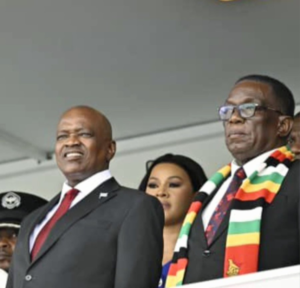ZRP’S BAFFLING ARREST: CSO STAFF DETAINED DESPITE CHIGUMBA’S GREEN LIGHT
Harare — In a move that has sent shockwaves through the democratic spheres of Zimbabwe, the Zimbabwe Republic Police (ZRP) has arrested members of a Civil Society Organisation (CSO) who had established data centres to tabulate the recent election results. The perplexing part of this event is that the arrest was executed despite an explicit recommendation by Priscilla Chigumba, the Chairperson of the Zimbabwe Electoral Commission (ZEC), to set up such centres.
For the context, in a bid to promote transparency and build trust among all the stakeholders involved in the electoral process, Chigumba had encouraged CSOs to play a verification role. By setting up these data centres, the CSOs were essentially taking a step towards ensuring that the election results were free, fair, and credible.
However, the ZRP’s recent move paints a contrasting narrative and raises myriad questions about the sanctity of the electoral process. The arrest, which some critics argue to be politically motivated, threatens to undermine the very ethos of democracy in Zimbabwe, casting doubts over the transparency and legitimacy of the electoral proceedings.
The CSOs, lauded internationally for their commitment to fostering a culture of accountability and transparency, had put in place the data centres as a bulwark against potential electoral malpractice. Their efforts were not to replace or replicate ZEC’s mandate but to work in tandem, corroborating the results and ensuring accuracy. By having an independent entity scrutinising the election results, both ZEC and the general public would benefit from a bolstered confidence in the electoral process.
Yet, the question remains – why would the ZRP arrest the very individuals working for a more transparent Zimbabwe?
There are murmurs that these arrests may have been influenced by elements within the government that feel threatened by a transparent electoral process. The CSOs, with their ability to cross-check and validate election results, pose a direct challenge to any entity attempting to manipulate the election outcomes. By arresting and intimidating these CSO staff members, the police, wittingly or unwittingly, become instruments in suppressing transparency.
Furthermore, the disconnect between ZEC’s stance and the actions of the ZRP further accentuates the challenges faced by Zimbabwe’s institutions. When two significant entities of the nation convey mixed signals, it not only confounds the public but also diminishes the credibility of the entire electoral process.
The international community, especially organisations committed to upholding democratic values, have voiced their concerns over the arrest. The European Union’s spokesperson for Foreign Affairs and Security Policy stated, “The arrest of CSO members working to verify the electoral process is a setback for democracy in Zimbabwe. It undermines the efforts made by ZEC to ensure a transparent election.”
As the news spreads, local communities too have voiced their concerns, with protests erupting in various parts of Harare demanding the immediate release of the CSO staff. Social media platforms are abuzz with hashtags like #FreeCSOStaff and #TransparencyFirst, and citizens, irrespective of their political affiliations, are rallying together for a common cause.
The next steps are crucial. The ZRP needs to provide a clear rationale for the arrest. If the CSO staff have indeed violated any laws, the nature of these transgressions must be made transparent. If, however, these arrests are without merit, the staff should be released promptly, and an official apology should be issued.
In these testing times, Zimbabwe stands at a crossroad. Will the nation choose the path of transparency, or will it regress into the shadows of opaque governance? Only time will tell. But for now, the world watches, and Zimbabweans demand answers.



